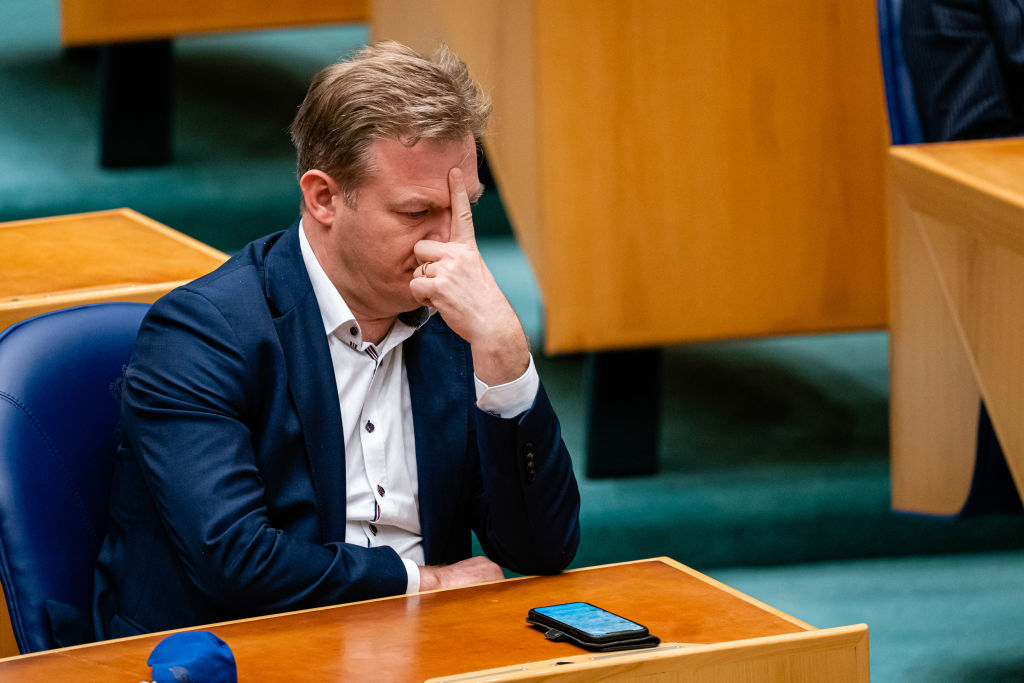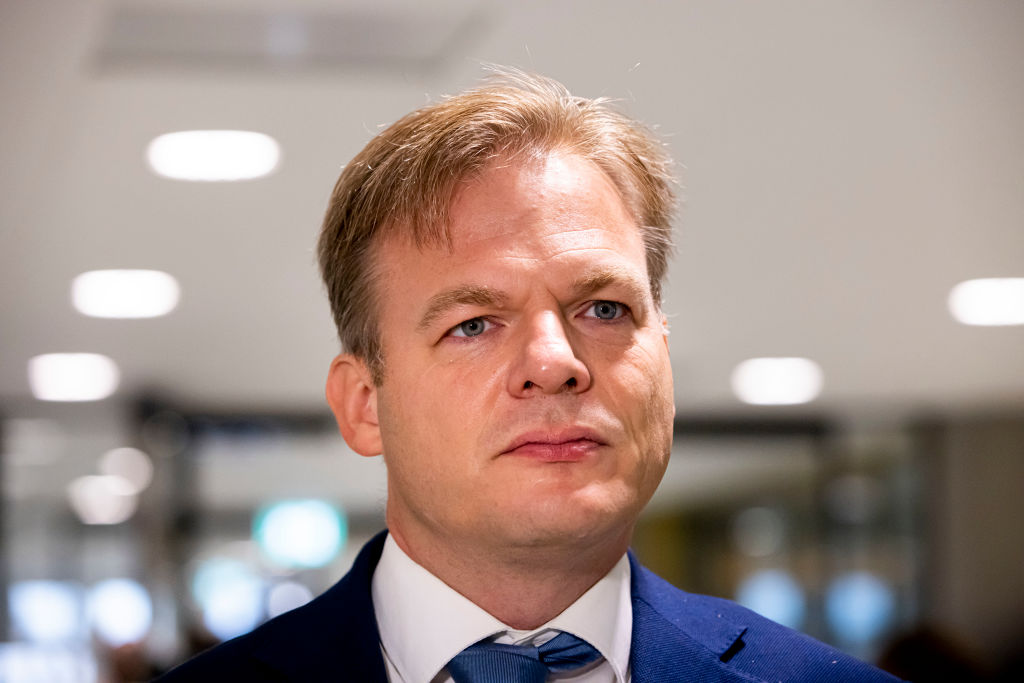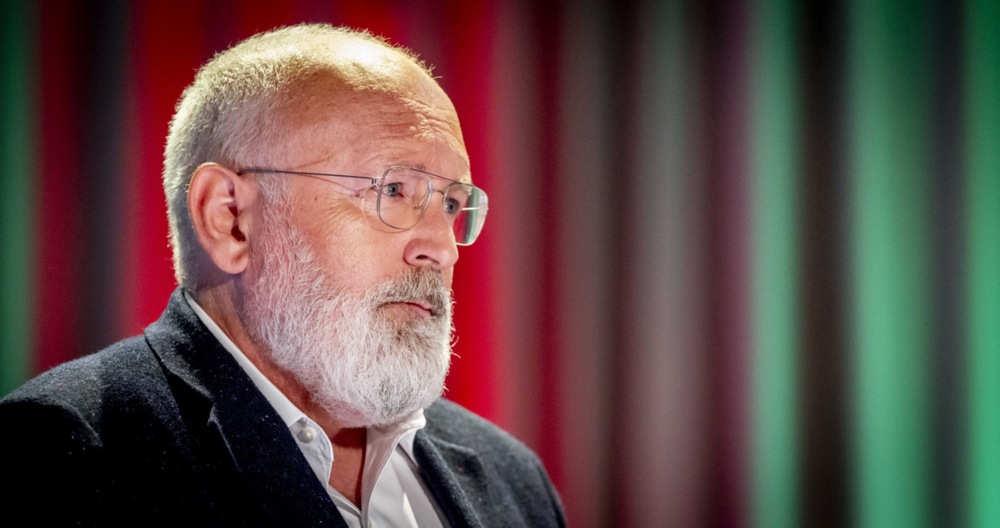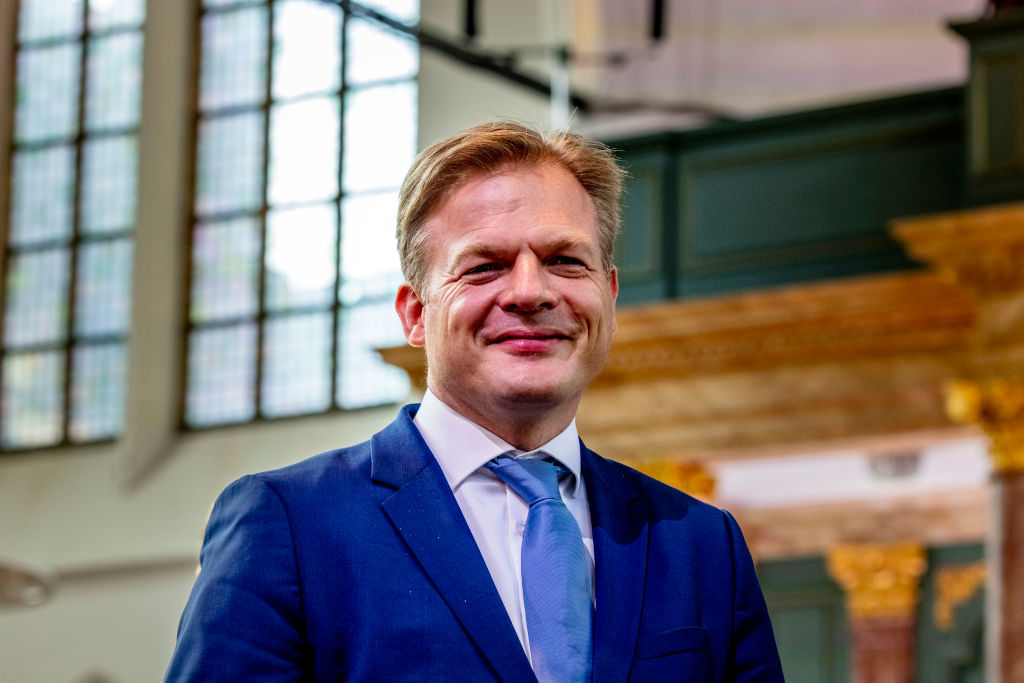The new political party founded by Pieter Omtzigt, a centrist politician in the Netherlands, has been leading in the polls for a few months but has only now made its programme public.
Since its inception, the Nieuw Sociaal Contract party (NSC) has made “good governance” and “livelihood security” its focal points and the new election programme reflects it. As do the title and tagline, “Time for recovery” and “Confidence. Certainty. Perspective”.
“The most important thing is to restore the administrative order in the Netherlands,” Omtzigt said at the public presentation.
He said he felt that if nothing improved in the country, problems would continue to crop up. In the meantime, he added, citizens “will continue to disengage from politics and sometimes from Dutch society altogether”.
Omtzigt said he wants an overhaul of governance before he addressed other problems. “The current technocratic way of governing has actually got us into trouble,” he said.
One of the proposed solutions for this is the instalment of a constitutional court, which does not currently exist in the Netherlands.
“We like to lecture other countries about human rights, but those basic rights were long violated in our own country,” he claimed.
Omtizgt also wants better protection for whistleblowers. That comes against the backdrop of the Dutch childcare benefits scandal in 2021 that led to him leaving the Christian Democrats (CDA) and launching his own party.
For people living in poverty, his programme advocates for better support. The party wants universal accessibility for basic needs such as energy and care. It also wants more to be done in the fight against food poverty.
Lowering migration is another big-ticket issue. Omtzigt wants to install two systems – one for migrants who stay for a short time, for instance those fleeing war – and one for those who stay for a longer time, such as religious or political dissidents.
The migration balance, or the number of new immigrants minus those departing the Netherlands, should not exceed 50,000 individuals per year, according to the NSC programme.
This includes, in addition to asylum applicants, foreign students and labour migrants. Omtzigt described that as a guide number. “If you go above that, you have to implement additional policies,” he said. Migration should be part of a new and fully competent ministry, he added.
The new party also wants more land for new housing projects, going against the plans of the current government, which wants less as it aims curb emissions and protect nature.
Omtzigt had more to say about emissions. He pleaded for “common sense and a keen eye for all interests”. He also said he wanted the present nitrogen law to be repealed. Furthermore, the primary focus should be on emissions rather than where the nitrogen is deposited (deposition), he added.
Regarding energy and climate, the party wants to build at least two new nuclear power plants and explore the possibilities of Small Modular Reactors (SMRs).
Recent polls put the NSC at 28 seats, making the new party the biggest in the country. It is ahead of the Liberal VVD party and Socialist-Green coalition list under the leadership of former European “Green Pope” Frans Timmermans.
Elections to the House of Representatives are scheduled for November 22, 2023
Omtzigt has emerged as a notable adversary of departing Prime Minister Mark Rutte and played a pivotal role in toppling his administration. He did so by actively investigating the scandal involving numerous families wrongly implicated in the 2021 child-care benefit fraud due to their ethnicity.
His work made him popular with the electorate but unpopular with his political colleagues. The cabinet that fell over the scandal Omtzigt had exposed was eventually replaced by a new one made up of the same parties, which spurred him to leave the CDA, also in 2021.
He was perceived as a voice for the Eurosceptic faction within the CDA. He expressed reservations about the policies of the European Central Bank and, in 2020, advocated within his party for endorsing the concept of the Netherlands choosing not to participate in European Union programmes it deemed undesirable.
Om 10:00 uur presenteer ik samen met Eddy van Hijum het verkiezingsprogramma van @NwSocContract voor de aankomende Tweede Kamerverkiezing. Het heeft de titel: ‘Tijd voor herstel’.
Volg de presentatie via: https://t.co/txK2W1az67 pic.twitter.com/AzqcnopaE3
— Pieter Omtzigt (@PieterOmtzigt) October 24, 2023





